Team Canada Athletes on How to Harness Pressure
Eight elite athletes share lessons on managing high-stakes situations, whether you’re on a ball court or in a boardroom
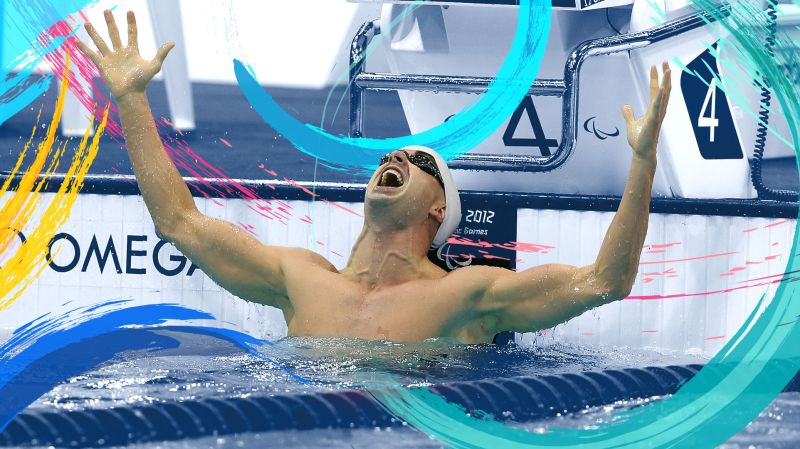
Tennis great Billie Jean King famously described pressure as a privilege. But it doesn’t always feel that way in sport — or in business. The burdens of high expectations, intense scrutiny and potential triumph can be brutal, whether you’re pursuing a spot on one type of podium or speaking at another one.
Yet pressure can also be a catalyst to tremendous achievement, once you learn to proactively and productively deal with it.
Who better to speak to stressful situations than the rare few who’ve had the experience of a) performing feats of great athleticism, b) after four-plus years of training, c) against the best of the best, and, oh yeah, d) with the entire world watching?
To celebrate this summer’s Paris 2024 Olympic and Paralympic Games, Smith Business Insight contributor Deborah Aarts spoke with eight former members of Team Canada and Smith School of Business alumni to find out what their intense sports careers taught them about managing pressure, and how business leaders can thrive when the stakes are high.
Leverage your experience

Dominique Bosshart
Sport: taekwondo; Olympic Games: Athens 2004, Sydney 2000 (bronze medallist); Current role: Game Plan advisor, Canadian Sport Institute Ontario
The magnitude of Executive MBA alum Dominique Bosshart’s, EMBA'24, first Olympic experience hit her just before the Sydney Games began, during a routine tour of the venue at which she’d compete — and ultimately medal. Seeing a phalanx of TV cameras and lights pointed at the sparring mat made her realize just how many people would be watching and just how vital it would be to manage her excitement and stay in the moment.
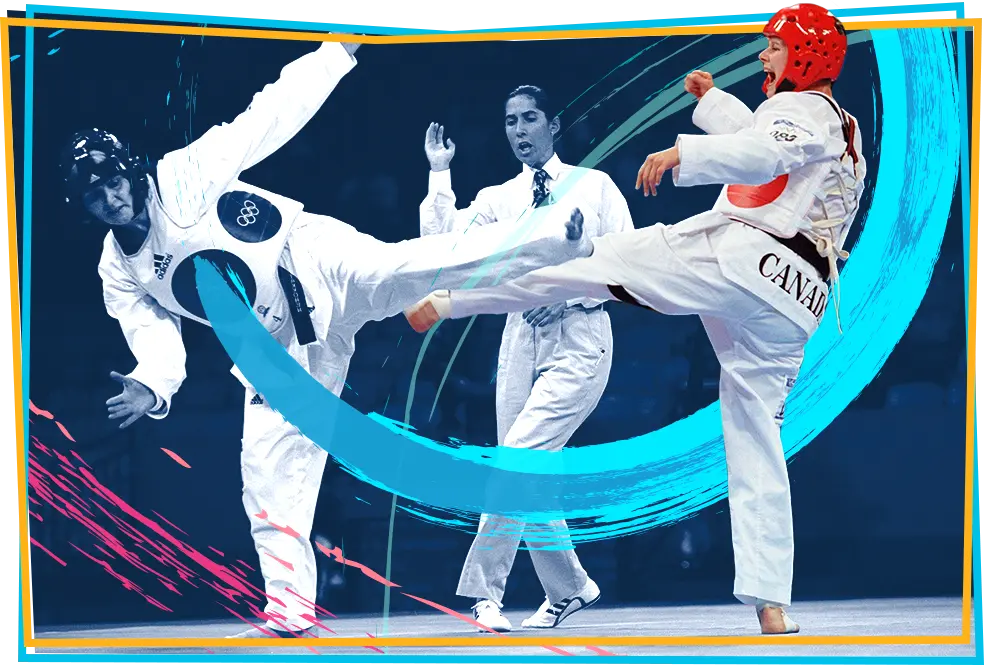
The words of a fellow Olympian, with whom she’d shared a flight to Australia days earlier, came to mind: “She said to me, ‘Don’t let it be overwhelming,’ ” Bosshart recalls. “She told me to remember that even though the Games had more glitz and glamour and distractions than I was used to, fundamentally I wasn’t doing anything new in Sydney. I knew my sport. I knew the rules. I knew how to compete. And remembering that shaped how I approached the whole experience.”
Bosshart’s pressure pointer:
“You can get quickly lost in a high-pressure experience,” Bosshart says. “You can be pushed and pulled emotionally and come against unplanned things that can really throw you off. But if you are centred in the mindset of ‘I am going to stay in the moment, control what I can control and give my best effort,” it helps you to prepare and feel well-equipped for when things go off plan. Standing in your strength and authenticity really brings forward your confidence.”
Remember the risks
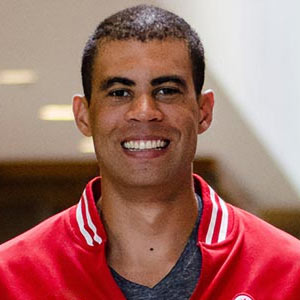
Greg Douglas
Sport: sailing; Olympic Games: London 2012, Beijing 2008; Current role: manager, Monitor Deloitte
The World Championships leading up to the 2012 London Games provided a literal turning point in how sailor and MBA alum Greg Douglas, MBA'19, approaches high-stakes situations. The breezy, cool conditions suited his style, and for the first few days of the competition he was comfortable and confident in his performance. Then, during a race midway through the regatta, ahead by a large margin, he found himself facing a gybe (that means a turn, in non-sailing speak) against a strong headwind — a challenging move, even for someone with his experience and skill. Douglas had a choice: Should he approach the bend with caution? Or should he risk it and take it at full speed?

The temptation to chase greatness won out — “as an athlete, you’re always striving to go faster, faster, faster,” he explains — and he capsized, eliminating his lead in the race and damaging his overall standings. “I didn’t deal with that particular high-pressure situation very well,” he says. “If I had decided to give up a little bit of the big lead that I had to ensure I completed the race with a win, I would have had a very different outcome.”
Douglas’s pressure pointer:
“I always used to think it wasn’t good to overthink things: That if I felt confident in my preparation and my process, success was just a matter of executing,” Douglas says. “But I’ve learned that in truly high-pressure situations, sometimes you need to pause and think: ‘Is this worth it? Should I really be going that extra mile for a potentially small gain?’ The ability to do this is something that I took forward in not only my sailing career but in my professional and personal life as well.”
Check your ego

Matt Hallat
Sport: para alpine skiing; Paralympic Games: Sochi 2014, Vancouver 2010, Torino 2006; Current role: high performance director, para alpine skiing, Alpine Canada
It took Accelerated MBA alum Matt Hallat’s, AMBA'24, last competitive race for him to realize how much his attitude to stressful situations had evolved. Positioned at the start gate atop B.C.’s Panorama Mountain during the 2015 IPC Para Alpine Skiing World Championships, he learned that the competitor who preceded him had not finished the run, meaning that all Hallat had to do to medal was make it to the bottom. Whereas his younger self would not have been able to recognize the situation in real time, his experience now allowed him to register what was needed in the moment, putting down a solid run — not necessarily his best, but enough to earn a place on the podium.
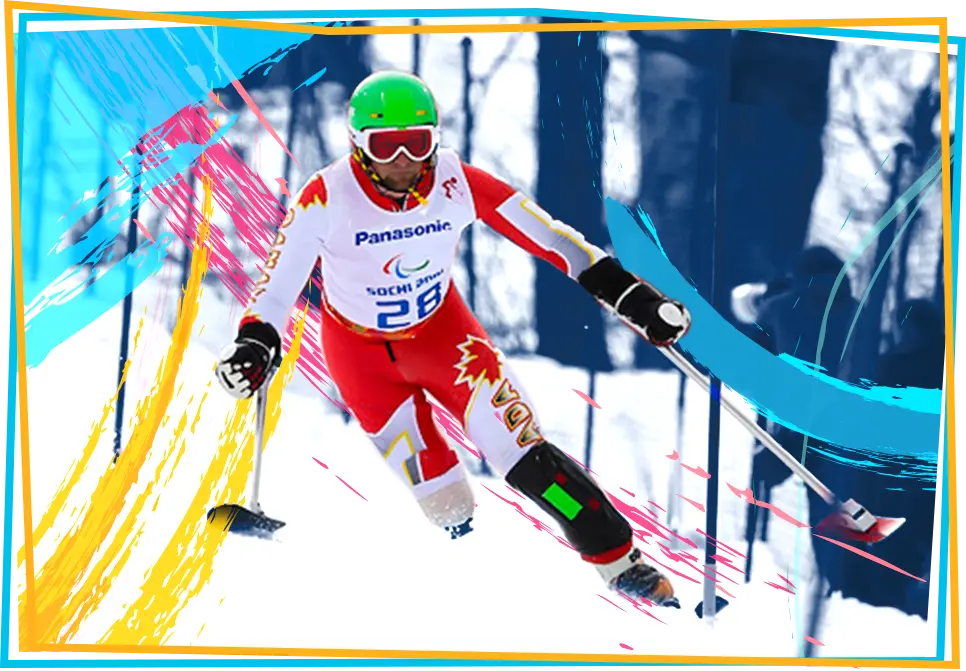
“At that point in my career, I was over the Cinderella story of ‘I’m going to overcome great odds and be a hero,’ ” Hallat says. “Because I’d had the privilege of doing this over a long tenure, I was able to adapt my thinking — which can be nearly impossible to do in the moment — and deliver the right run at the right time.”
Hallat’s pressure pointer:
“When you’re in an innately pressure-heavy situation — whether competitive sport or business — I don’t know that there’s a good way to have less stress,” Hallat says. “But I do think there are better ways to handle and manage that stress. I like to think of it this way: If you’re in a moment of pressure, it means that you’re probably doing something that is very meaningful to you in some way, something not everyone gets a chance to do. When you think of it that way, it’s easy to see pressure as a privilege, and not a burden. And that’s important, because if you’re just carrying stress with you all the time and trying to out-lift it, eventually the stress wins.”
Focus on your own lane
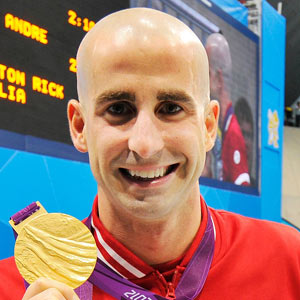
Benoît Huot
Sport: para swimming; Paralympic Games: Rio 2016 (1 bronze), London 2012 (1 gold, 1 bronze, 1 silver), Beijing 2008 (4 bronze), Athens 2004 (5 gold, 1 silver), Sydney 2000 (3 gold, 3 silver); Current roles: director of operations, Helios Group; columnist and analyst for Radio-Canada; keynote speaker
You might think Executive MBA alum Benoît Huot’s, EMBA'20, confidence would have been at an all-time high heading into the Beijing Paralympics in 2008. It was his third Games, and he’d already earned a dozen medals — eight of which were gold — in the previous two. Instead, the swimmer was unnerved by the ascent of Brazilian André Brasil, who was quickly threatening Huot’s dominance in the sport.

“I was the favourite going into Beijing, and then he came along,” Huot says. He began to fixate on the performance of the first true rival he’d encountered in the pool. “I spent more energy thinking about what he was doing in his training, and how he was competing, than I did on what was happening in my own lane,” he reflects. Huot left China with four bronze medals (to Brasil’s four golds), and a powerful lesson about pressure: It is almost impossible to perform at peak when you’re preoccupied with what others are up to.
Huot’s pressure pointer:
“I use an exercise based on Simon Sinek’s Golden Circle,” Huot explains. “Think of three concentric circles — like a target. The biggest circle is your plan: Think of what you intend to do. The middle circle is your practice: Think of how you intend to make your plan happen. And the smallest circle, at the very centre, is your purpose: Remember why it is so significant for you to do what you’re doing. It helps me refocus on what matters and ignore what doesn’t. It worked for me after the challenges of 2008, and it works for me in stressful situations now.”
Silence your inner critic

Miah-Marie Langlois
Sport: basketball; Olympic Games: Rio 2016; Current roles: social impact and partnerships, MLSE (Maple Leaf Sports & Entertainment); player development – decision making specialist
The last round-robin game played by the Canadian women’s basketball team at the 2016 Rio Games was a big one. The opponent, Serbia, played a fast, intense game, and a spot in the tournament playoffs was on the line. It was a rough start for Team Canada, which trailed by 20 points at halftime, and for point guard and Master of Management Innovation & Entrepreneurship alum Miah-Marie Langlois, MMIE'20, who had netted precisely zero of eight shots by the start of the fourth quarter. But the team began to claw back, and with 15 seconds left Serbia’s lead had dwindled to just two points.

As the clock ticked down, her teammate threw the ball to Langlois, who sank a three-pointer to win the game. “For me, that was the epitome of a high-pressure moment because I hadn’t been shooting well, and that can get in your head,” Langlois explains. “It would have been so easy for me to tell myself ‘I’m probably not going to score. I’m shooting bad.’ But instead, I didn’t think about anything.” She let her countless hours of practice, preparation and training take over, superseding any thoughts of self-doubt — and it made all the difference.
Langlois’s pressure pointer:
“I think repetition helps to regulate how you respond to high-pressure situations — and I’ve been in many of them,” Langlois says. “As elite athletes, we become used to having to manage the emotional arousal that pressure can create, because pressure is part of the game — there’s no way around it. We learn to recognize the influences or the triggers that rouse our emotional responses, and we learn what [we need to do] to get them up and get them down. When you break it down, it’s as simple as that. It has nothing to do with the other team. It has nothing to do with the environment. It has everything to do with keeping yourself at that level where you’re able to perform.”
Get comfortable with discomfort

Meaghan Mikkelson Reid
Sport: ice hockey; Olympic Games: PyeongChang 2018 (1 silver), Sochi 2014 (1 gold) Vancouver 2010 (1 gold); Current roles: keynote speaker; hockey analyst; brand ambassador
There were a lot of eyes on Team Canada during the final women’s hockey game at the 2014 Sochi Games — perhaps you were one of the 13 million Canadians who tuned in? — and a lot of expectations. The team was the defending champ, playing its fiercest rival (the U.S. national squad), with gold medals on the line. For veteran defencewoman and Accelerated MBA alum Meaghan Mikkelson Reid, AMBA'24, the stress was particularly acute: She’d broken a bone in her right metacarpus four days prior and was therefore representing her country with a partially frozen hand.
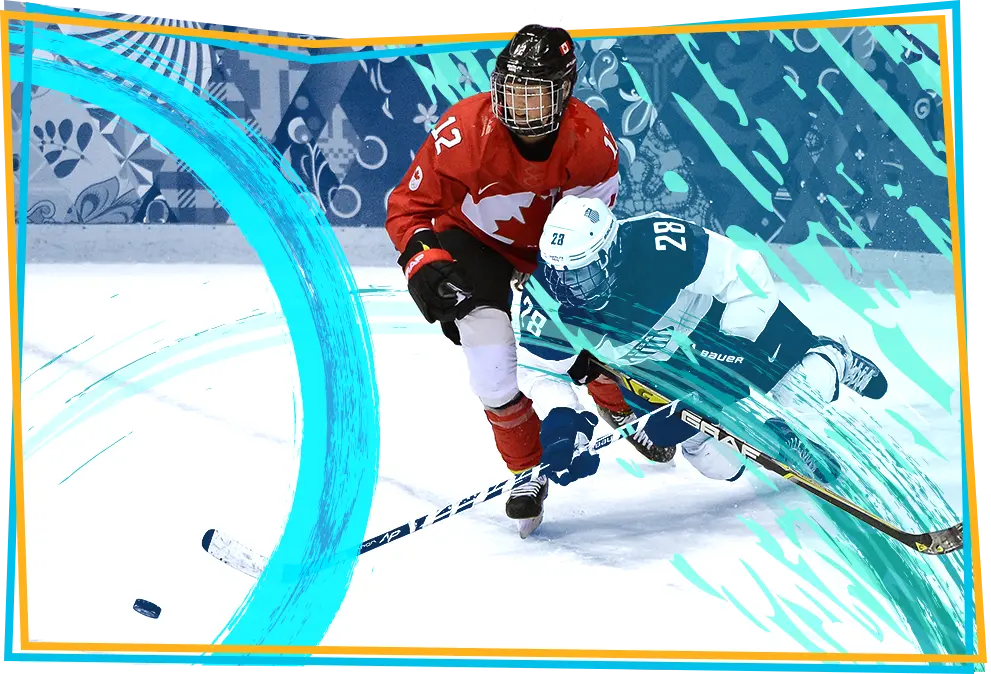
Yet, she clocked the second-most minutes of ice time among the game’s defencewomen, notched an assist on the goal that sparked the team’s come-from-behind win and flew home with her second gold. How? “I’d really let go of any expectations,” Mikkelson Reid explains. “It’s a cliché, but I went into the game determined to take it one shift at a time, and that allowed me to stay present. When we think too far ahead, it can take away from our performance in the moment.”
Mikkelson Reid’s pressure pointer:
“Being under pressure is never comfortable; I don’t care who you are or what you do,” says Mikkelson Reid. “But if you are uncomfortable, it means you’re doing things that are going to challenge you, change you and, ultimately, make you not only better at what you’re doing but a better person, too. Pressure gives you that chance to challenge yourself. Having a continuous growth mindset of always wanting to be better and to push yourself beyond your boundaries allows you to figure out what you’re capable of. Thinking of it that way lifts you up and makes you feel like you can rise to the occasion.”
Envision success

Mirela Rahneva
Sport: skeleton; Olympic Games: Beijing 2022, PyeongChang 2018; Current role: partnerships development manager, KidSport Calgary & Area
The first of Master of Management Innovation & Entrepreneurship alum Mirela Rahneva’s, MMIE'21, four heats at the 2022 Beijing Winter Games was outstanding, setting a track record and putting her in the gold medal position. She was elated — for a moment. Then the doom settled in. “The first words out of my mouth were, literally, ‘Well, this means the next run will be horrible.’ ” Lo and behold, it was, and she dropped to ninth place.
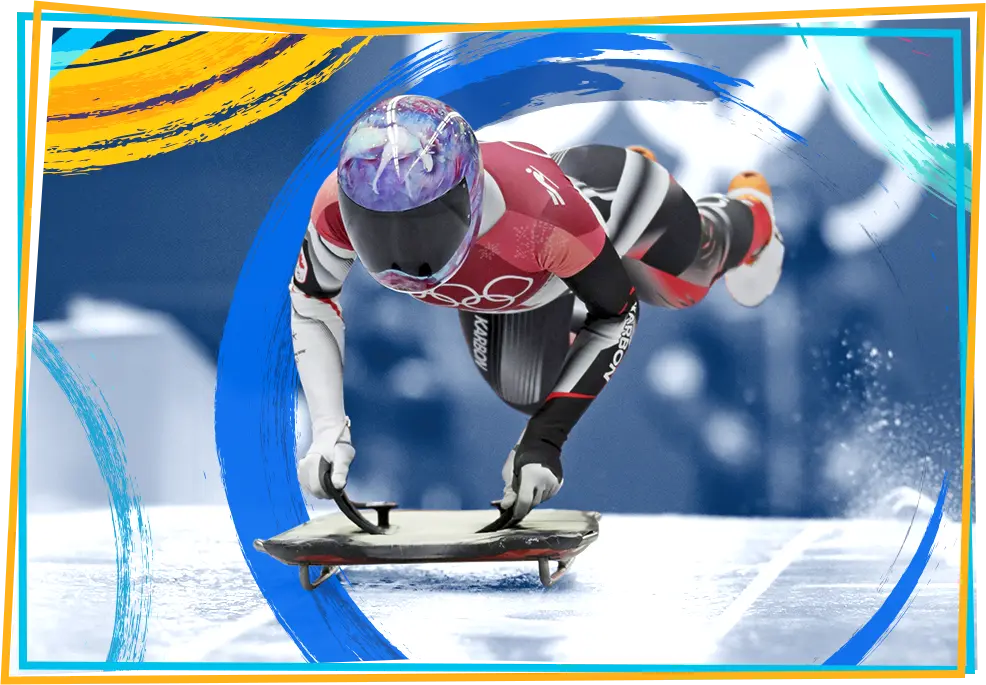
“That internal chatter reverberated through me, and my body did what my brain instructed it to do.” Retreating to the Olympic Village for the night, she vowed to reset her mind for the next day’s competition, wherein she was able to channel a much more positive mindset and race her way to a fifth-place finish overall. “I’ve learned to be really careful about the internal dialogue that I keep in my head because it really does matter so much in high-pressure situations.”
Rahneva’s pressure pointer:
“When a skeleton track for the Olympics is built, it’s new for everyone,” Rahneva says. “There are no course notes, and we can only use theory to speculate where the pressure points and oscillations will be before we head down for the first time. You learn to absorb information very quickly and make decisions very fast. It really becomes a game of assuming all scenarios — playing out different situations in your mind and working through the multiple domino effects of where each choice will lead. Over time, your brain starts slowing things down enough for you to be able to make informed decisions, even when you’re travelling at 140 kilometres an hour. The mental rehearsal helps take the pressure off.”
Regulate your emotions

Oluseyi Smith
Sport: athletics and bobsleigh; Olympic Games: PyeongChang 2018, London 2012; Current roles: manager, renewable energy generation engineering, Portage Power; founder, Racing to Zero
Executive MBA Americas alum Oluseyi Smith, EMBAA'23, came in hot to the 100-metre semifinals of his first World Junior Championships in athletics in 2006. He’d been running well in preliminary heats and his teammates were confident he’d earn a slot in the final. So was he. As a 17-year-old new to competition at this elite level, the prospect of such a big win felt intoxicatingly exciting — so much so that he spent the entire race thinking about what victory would mean (validation of his skill, a better team result, glory) instead of what he actually had to do to win. He didn’t advance.
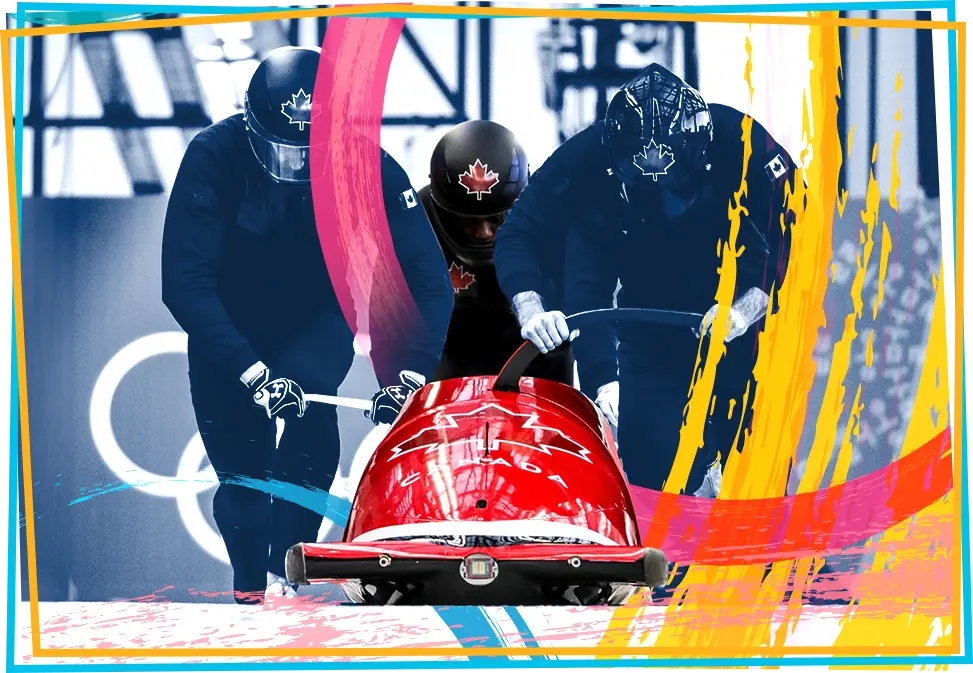
“It was an awful experience,” Smith remembers, “but it taught me to focus on only one thing at a time.” Indeed, the young athlete licked his wounds, began working with a sports psychologist and learned how to rein in intrusive thoughts in the moments that matter most — tactics that secured his place on the track at not only the London 2012 Summer Games but also the bobsleigh course of the PyeongChang 2018 Winter Games.
Smith’s pressure pointer:
“When you’re involved in something as intense as a 100-metre final, it’s easy to succumb to pressure and start thinking ‘What happens if I win?’ ‘What happens if I lose?’ ‘What happens if this guy runs in front of me?’ ‘What happens if I get injured?’ These are all external things that have no impact on your ability to perform,” Smith says. “You need to focus your thinking entirely on what matters, and there are tricks and tools you can use to do that. Over time, I’ve learned to use breathing techniques to control my physiological response to pressure and manage any lack of focus. Breathing exercises can calm your sweating, calm the beta waves in your brain and allow you to enter a state of Zen [so that you can] focus only on what will help you successfully do what you need to do.”
Smith School of Business is the official national business education partner of the Canadian Olympic Committee and Canadian Paralympic Committee, as well as a founding partner of Game Plan, Canada’s total athlete wellness program, which helps elite athletes plan for success beyond sport. The alumni featured in this article were granted Game Plan Awards to pursue their post-secondary education at Smith School of Business.